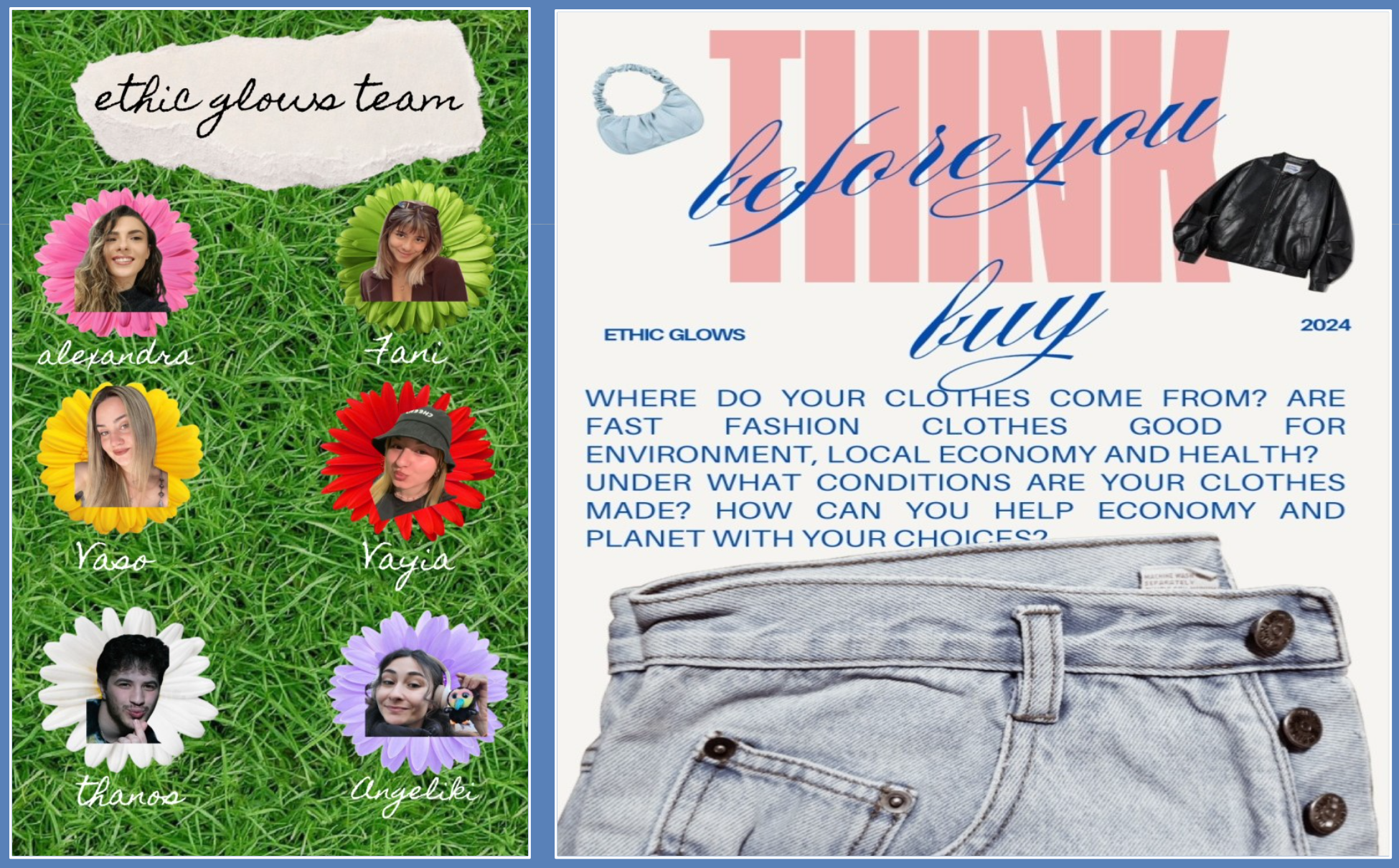Conscious Consumption through Critical Reflection

- Summary
- Fact Sheet
- Project Details
This learning project tackled the often-overlooked ethics of everyday consumerism by exploring how critical thinking can challenge manipulative marketing, unsustainable practices, and passive consumer habits. In collaboration with the Institute for Sustainable Consumption and Ethical Trade, students examined supply chains, media narratives, and personal behaviours to develop educational tools that empower more ethical choices.
The initiative supported SDGs 12 (Responsible Consumption and Production), 4 (Quality Education), 10 (Reduced Inequalities), and 13 (Climate Action). Activities included a media literacy workshop, a public campaign titled “Think Before You Buy”, a simulation-based pop-up market, and a reflective digital booklet called “The Ethics of Everyday Choices.”
Challenge
Young people often lack tools to critically engage with manipulative consumer culture, despite growing concerns about the social and environmental impact of what we buy. The project aimed to fill this gap by connecting personal choices with global sustainability and equity issues.
Target Groups:
Primary beneficiaries were youth aged 17–30, including students, young professionals, and high school learners. Indirect audiences included educators, youth workers, and civil society actors interested in ethical consumption education.
Solution
Students developed interactive, critical learning tools that helped peers deconstruct advertisements, navigate ethical dilemmas, and trace the true cost of common goods. Activities encouraged reflection, dialogue, and action—redefining everyday consumption as a civic and ethical decision.
Innovation
By fusing critical thinking, environmental ethics, and experiential learning, the project moved beyond “awareness” into activation. Instead of offering guilt or prescriptions, it encouraged questions, curiosity, and agency.
Impact
Over 60 citizens engaged with the Conscious Market event, and the final digital booklet was integrated into the Institute’s outreach materials. Several schools requested adapted workshop versions, and students reported lasting shifts in how they think about and act on consumption.
This student project is submitted through:
Aristotle University of Thessaloniki
It involved 6 students from the Department of Philosophy and Education
Project poster: Download Here
